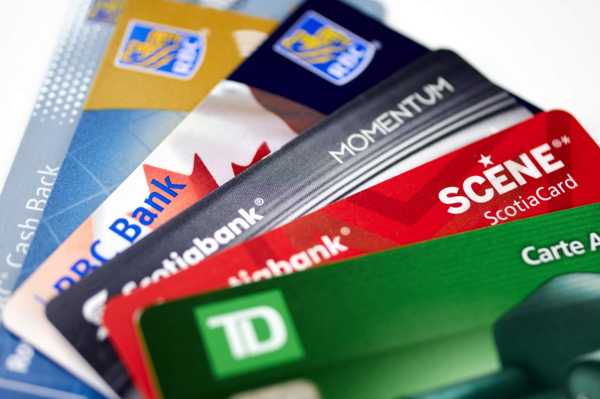Effective Substance Abuse Treatment Solutions That Work
Substance abuse is a serious and chronic condition that impacts millions of individuals and their families every year. It’s a disease that can affect anyone, regardless of age, background, or social status. However, the good news is that substance abuse treatment solutions are available, and with the right approach, recovery is not only possible but achievable. The best treatment programs are evidence-based, personalized, and comprehensive, addressing both the physical dependence on substances and the psychological aspects of addiction.
Substance abuse is a serious and chronic condition that impacts millions of individuals and their families every year. It’s a disease that can affect anyone, regardless of age, background, or social status. However, the good news is that substance abuse treatment solutions are available, and with the right approach, recovery is not only possible but achievable. The best treatment programs are evidence-based, personalized, and comprehensive, addressing both the physical dependence on substances and the psychological aspects of addiction.

In this article, we will explore the most effective substance abuse treatment solutions, breaking them down into proven therapies and interventions that have helped many individuals reclaim their lives from addiction.
1. Detoxification (Detox)
The first step in overcoming substance abuse for many individuals is detoxification (or detox), a medically supervised process that helps individuals safely withdraw from the substance they’ve become addicted to. Detox is especially important for people who are physically dependent on alcohol, opioids, or benzodiazepines, as withdrawal from these substances can be dangerous.
- Medically supervised detoxprovides a safe environment where healthcare professionals monitor the individual’s health and provide medications if necessary to ease withdrawal symptoms.
- Detoxis typically short-term but is the foundation upon which further treatment is built, and it must be followed by therapy to address the psychological aspects of addiction.
Benefits:
- Prevents life-threatening withdrawal symptoms.
- Provides a clean slate for the individual to begin therapy and other recovery treatments.
- Lays the groundwork for long-term recovery by stabilizing physical health.
2. Inpatient or Residential Treatment
Inpatient or residential treatment involves staying at a rehabilitation facility for an extended period of time, usually 30 to 90 days. This form of treatment is ideal for individuals with severe substance abuse problems or those who may be at risk of relapse. It removes individuals from their environment and provides a highly structured, safe, and supportive space for healing.
- Inpatient treatmentinvolves a combination of medical care, individual counseling, group therapy, behavioral therapy, and 24/7 supervision. It allows individuals to focus entirely on their recovery without distractions or temptations.
- This setting is also ideal for those who have a history of relapsing, as it offers the intensity and focus needed to address addiction on a deeper level.
Benefits:
- 24/7 careensures safety and allows for close monitoring of the individual’s health.
- Provides a structured environmentthat eliminates triggers and external pressures.
- A holistic approach, combining therapy, support groups, and wellness activities, fosters long-term recovery.
3. Outpatient Treatment
Outpatient treatment allows individuals to receive therapy and support while living at home and maintaining daily responsibilities such as work or school. Outpatient treatment is generally recommended for those with milder addiction issues, a stable home life, or individuals who have already completed inpatient care and are transitioning to a more independent stage of recovery.
- Intensive outpatient programs (IOP)or partial hospitalization programs (PHP) offer therapy several times a week, often for several hours per day.
- Standard outpatient programsmay involve weekly sessions and provide ongoing counseling, support groups, and educational resources.
Benefits:
- Flexibilityallows individuals to maintain their daily routine while receiving treatment.
- More affordable than inpatient care.
- It’s effective for those who have a strong support system and motivation to recover.
4. Medication-Assisted Treatment (MAT)
Medication-Assisted Treatment (MAT) is a scientifically proven, highly effective approach for treating addiction, particularly opioid and alcohol dependence. MAT combines the use of FDA-approved medications with counseling and behavioral therapy to help individuals manage withdrawal symptoms, reduce cravings, and maintain sobriety.
- MAT medicationsinclude methadone, buprenorphine, and naltrexone for opioid addiction, and disulfiram (Antabuse), acamprosate, and naltrexone for alcohol addiction.
- MAT helps individuals overcome cravings and relapses, which is particularly important during the early phases of recovery.
Benefits:
- Reduces cravingsand withdrawal symptoms, making it easier for individuals to stay sober.
- Increases treatment retentionand improves overall recovery outcomes.
- Helps people achieve long-term sobrietyby addressing both the physical and psychological aspects of addiction.
5. Cognitive Behavioral Therapy (CBT)
Cognitive Behavioral Therapy (CBT) is one of the most widely used therapies for substance abuse. It focuses on identifying and changing negative thought patterns and behaviors that contribute to addiction. CBT teaches individuals to recognize their triggers, manage their cravings, and develop healthier coping strategies for managing stress and emotions.
- CBThelps individuals identify and address the root causes of addiction, whether that’s emotional distress, poor coping skills, or trauma.
- It also equips people with problem-solving skillsand self-control techniques to prevent relapse.
Benefits:
- Teaches individuals to reframe negative thoughts and replace them with healthier coping strategies.
- Provides a structured, goal-oriented approach that empowers individuals to make lasting changes.
- Can be done in individualor group therapy settings, allowing for flexibility.
6. Group Therapy and Support Groups
Group therapy is a central component of many treatment programs. In group therapy, individuals share their experiences, struggles, and successes with others who are facing similar challenges. This sense of community and shared understanding can be incredibly powerful, helping individuals feel less isolated and more motivated to continue their recovery journey.
- 12-step programslike Alcoholics Anonymous (AA) and Narcotics Anonymous (NA) are some of the most well-known support groups, but there are also other non-12-step options such as SMART Recovery.
- Group therapy provides a platform for mutual supportand accountability, which is essential for long-term recovery.
Benefits:
- Encourages shared healing, which fosters a sense of belongingand community.
- Accountabilitywithin the group increases motivation to stay sober.
- Provides individuals with coping strategies, inspiration, and practical advice from others who are going through similar struggles.
7. Family Therapy
Addiction often strains relationships, and family therapy is an important treatment option for addressing the impact of substance abuse on family dynamics. Family therapy works with individuals and their loved ones to improve communication, rebuild trust, and develop healthier patterns of behavior.
- Family therapyhelps family members understand addiction as a disease and educates them on how they can provide support without enabling destructive behaviors.
- It also helps resolve any conflicts or emotional trauma within the family, which may have contributed to the addiction.
Benefits:
- Strengthens family relationships, which is crucial for long-term recovery.
- Provides families with the tools to supportthe individual’s recovery in a healthy, non-enabling way.
- Helps families heal together, promoting a positive environment for the individual in recovery.
8. Holistic Therapies
In addition to traditional treatments, many recovery centers now incorporate holistic therapies to address the mind, body, and spirit. These therapies provide a complementary approach to conventional treatments, helping individuals achieve balance and well-being.
- Yogaand meditation help individuals reduce stress, improve focus, and promote emotional healing.
- Acupunctureand massage therapy can help manage pain and anxiety, which are often common in addiction recovery.
- Art and music therapyprovide creative outlets for self-expression, helping individuals process emotions that may be difficult to verbalize.
Benefits:
- Reduces stressand improves mental clarity.
- Provides a well-rounded approachto recovery by integrating the physical, emotional, and spiritual aspects of healing.
- Helps individuals connect with themselvesin a deeper way, encouraging personal growth.
9. Aftercare and Relapse Prevention
The final stage of treatment is aftercare, which is an ongoing support system that helps individuals maintain their sobriety once they have completed a formal treatment program. Aftercare is essential because it helps individuals transition from structured treatment to the real world, where the risk of relapse can be high.
- Relapse prevention strategiesfocus on identifying potential triggers, developing coping strategies, and establishing a strong support system.
- Ongoing counseling, support groups, and alumni programsprovide continued support for individuals in recovery.
Benefits:
- Helps individuals maintain sobrietyover the long term by addressing potential relapse triggers.
- Provides accountabilityand emotional support through peer and professional connections.
- Encourages self-careand the development of a healthy, balanced lifestyle.
Conclusion: Tailoring Treatment to Your Needs
The most effective substance abuse treatment solutions are those that are personalized and comprehensive. Each person’s journey to recovery is unique, and the best treatment plan will vary depending on the individual’s needs, addiction history, and mental health status.
Combining traditional treatments like detox, therapy, and medication-assisted treatment with support groups, holistic therapies, and aftercare provides the most well-rounded approach to achieving lasting recovery. If you or someone you know is struggling with substance abuse, help is available, and the path to a healthier, happier life is within reach. Seek help today, and take the first step towards a future free from addiction.








